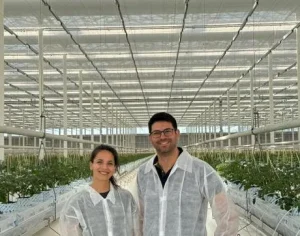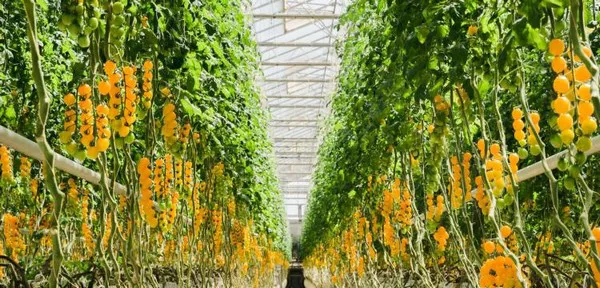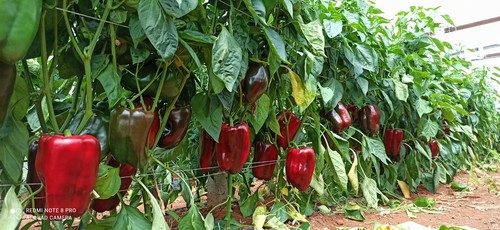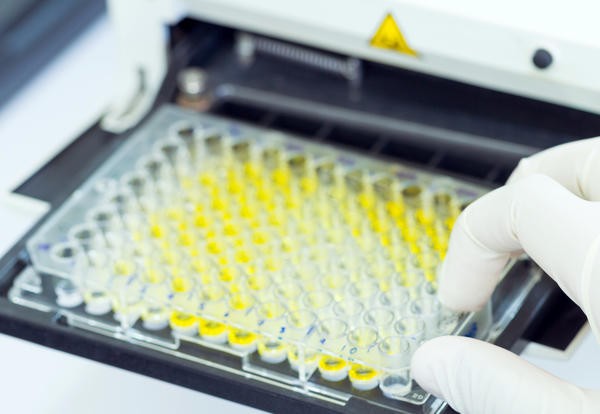In the rapidly evolving agricultural sector, the integration of data science and sustainable practices has become a cornerstone for companies seeking to improve efficiency and product quality. One such company, Lapietra, based in Monopoli in the Puglia region of Italy, has been at the forefront of this transformation. Throughout 2023, Lapietra has worked closely with Plant Empowerment consultants to enhance their tomato and cucumber production, focusing on improving plant health, yield, and sustainability.
Lapietra operates 14 hectares of greenhouse space, with 11.5 hectares dedicated to tomatoes and 2.5 hectares to cucumbers. The company, which employs over 100 people, grows all its crops hydroponically, a method that aligns with its commitment to sustainability. The company’s diverse product range includes mini cucumbers and a variety of tomatoes, including the distinctive black cocktail tomato called ‘Nero.’ With one semi-closed greenhouse equipped with LEDs, Lapietra is able to continue tomato production through the winter, meeting the growing demand for their products year-round.
Paolo Paciello, Head Grower and Technical Manager at Lapietra, has always been passionate about agriculture, bringing over a decade of experience to the company. Since joining Lapietra in 2010, Paolo has increasingly embraced the role of data in crop management. After reading the Plant Empowerment book, he quickly implemented its principles, leading to noticeable improvements in plant health, flavor, and yield. “Keeping the crops better in balance is good for plant health, and healthy plants mean better flavor, more uniform quality, and higher yields,” Paolo explains.
Lapietra’s proximity to the Adriatic coast provides a generally moderate climate, but the region can also experience high nighttime temperatures and humidity in the summer, which can challenge crop performance. To address these issues, Lapietra sought the expertise of Plant Empowerment consultants, brought in by their substrate supplier Saint-Gobain Cultilene. This multidisciplinary team helped analyze the interconnected factors affecting Lapietra’s greenhouses, offering tailored solutions to optimize crop conditions.
The collaboration involved a series of interactive online meetings where consultants shared insights with Paolo and his team, focusing on fine-tuning their approach to crop data. Remy Maat, Manager Application at Saint-Gobain Cultilene, provided expertise on smart water and root zone management, helping Lapietra adjust irrigation strategies and monitor plant responses to achieve optimal results.
One practical tip that brought immediate benefits was the redistribution of bumblebee hives throughout the greenhouses, which improved pollination and, consequently, the quality of the tomatoes. Additionally, the Plant Empowerment team guided Paolo in adapting the screening strategy to better manage shading, resulting in a more stable greenhouse climate that supports consistent crop performance.
Lapietra’s commitment to sustainability is reflected in its use of a biomass heating system, combined heat and power (CHP) system, and pesticide-free, soil-less cultivation methods. These practices, combined with the Plant Empowerment principles, have helped reduce the company’s energy, water, and fertilizer use, aligning with their goal of preserving the local environment for future generations.
Looking ahead, Paolo plans to delve deeper into data-driven growing to enhance production forecasting and align harvesting and delivery activities more closely with customer expectations, thereby reducing waste and improving client satisfaction. With plans to expand by adding another 3.5 hectares of greenhouse space, Lapietra is poised to continue its upward trajectory, applying the lessons learned from its collaboration with Plant Empowerment to further improve the quality and quantity of its crops while minimizing costs and inputs.











